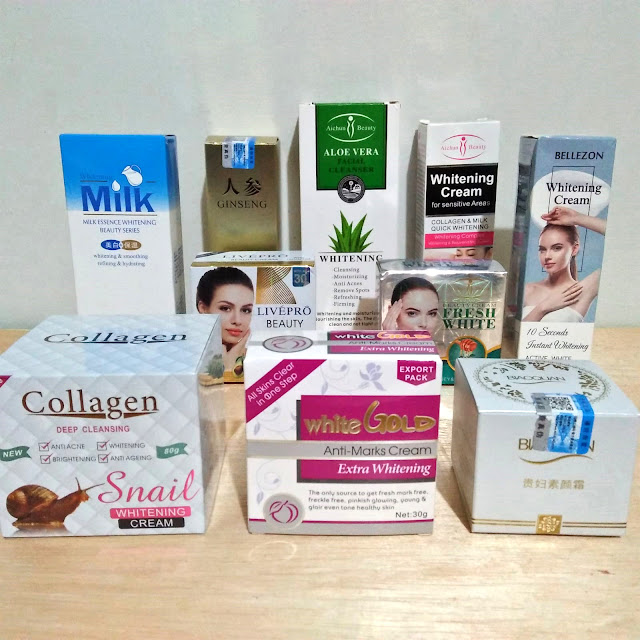EcoWaste Coalition Urges Cosmetic Dealers Not to Sell Unauthorized Products
The environmental and health watchdog group EcoWaste Coalition urged dealers of skin care cosmetics to secure authorization from the health authorities before placing such products in the market.
The group made the suggestion following its procurement of 10 skin care products that are being sold at 11/88 and 999 Shopping Malls in Manila without prior authorization from the Food and Drug Administration (FDA).
Sold from P50 to P120 per unit, the following unauthorized products are offered for sale in the said malls: Aichun Beauty Aloe Vera Facial Cleanser Whitening, Aichun Beauty Whitening Cream Collagen & Milk Quick Whitening, Aichun Beauty Fresh White Beauty Cream with Honey and Shea Butter, Bellezon Whitening Cream, Bi Ao Quan, Collagen Deep Cleansing Snail Whitening Cream, Ginseng Gold Polypeptide Anti-Wrinkle Essence, Livepro Beauty Cream with Lycopene, Whitening Milk-Milk Essence Whitening Beauty Series, and White Gold Anti-Marks Cream Extra Whitening.
The FDA has already issued public health warnings against the purchase and use of some of these products, including Advisories No. 2022-1254 and 2022-1255 issued on July 8, 2022 against Aichun Beauty Fresh White Beauty Cream with Honey and Shea Butter and White Gold Anti-Marks Cream Extra Whitening.
“While negative for heavy metals like mercury, we are not sure if these skin care cosmetics have passed quality and safety standards as the products did not go through the notification process of the FDA,” said Aileen Lucero, National Coordinator, EcoWaste Coalition. “The consumption of unauthorized cosmetics may pose health risks and should be avoided.”
According to the FDA, “the use of substandard and possibly adulterated cosmetic products may result in adverse reactions including, but not limited to, skin irritation, itchiness, anaphylactic shock and organ failure.”
X-Ray Fluorescence (XRF) screening conducted by the group failed to detect heavy metal contaminants such as arsenic, cadmium, lead and mercury in the analyzed samples. However, the XRF device is not capable of detecting all banned or restricted substances in cosmetics, as well as microbial contaminants, which may be present in the samples.
The manufacturer, importer or distributor of these cosmetics should observe the notification process and assume responsibility for the quality, safety and claimed benefits of their products before placing them in the market, the group pointed out.
According to the ASEAN Consumer Information Handbook on Cosmetic Products, cosmetic dealers are required to comply with the following requirements in order to market a cosmetic product in the region:
- Notify the national regulatory authority of the products they intend to sell before making them available for sale;
- Ensure that the products sold are manufactured according to ASEAN Guidelines for Cosmetics Good Manufacturing Practice;
- Ensure that their products do not contain any prohibited substances which can cause health risk and that only permitted colourants, preservatives and UV filters are used;
- Ensure that restricted ingredients are used only within the allowed limits and conditions of use;
- Label their products clearly; and
- Keep a Product Information File (PIF) on each cosmetic product they place in the market.
Consumers can check if a cosmetic product is notified with the FDA and has a valid Certificate of Product Notification by visiting the FDA Verification Portal at https://verification.fda.gov.ph/Home.php.
References:
- https://www.fda.gov.ph/wp-
content/uploads/2021/03/1.- ASEAN-Consumer-Handbook.pdf - Aichun Beauty Fresh White Beauty Cream with Honey and Shea Butter
- White Gold Anti-Marks Extra Whitening






Comments